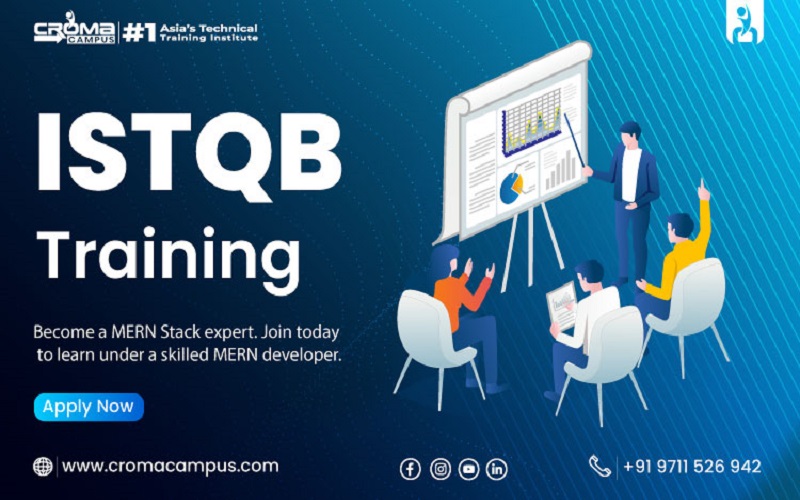The ISTQB is a globally recognized credential for software testers. It stands for the International Software Testing Qualifications Board and helps professionals validate their skills and knowledge in software testing. Whether you are a beginner who wants to kick start his career or a professional who wants to upskill, Getting certified is the best thing you can do for yourself.
In this article, we will explore the background of ISTQB Certification, understand what it involves, gain key insights, and learn how to get started with the certification process. So, gear up and let’s dive right in!
Background of ISTQB
What is ISTQB?
The ISTQB Certification is an internationally accepted qualification for software testers. It was established in 2002 by the International Software Testing Qualifications Board (ISTQB) to standardize the principles and practices of software testing. The certification is designed to provide a common understanding of software testing concepts and ensure a high level of proficiency among testers.
Why is Certification Important?
-
Global Recognition: This Certification is recognized worldwide, making it valuable for professionals seeking job opportunities in different countries.
-
Career Advancement: Holding an this Certification can enhance your resume and improve your chances of career advancement in the field of software testing.
-
Skill Validation: It validates your knowledge and skills in software testing, ensuring that you meet industry standards.
Understanding the Certification
Levels of Certification
This Certification is divided into different levels to cater to various expertise and career stages:
-
Foundation Level: This is the entry-level certification, suitable for beginners in software testing. It covers basic concepts and principles of software testing.
-
Advanced Level: This level is for testers with more experience and includes three sub-levels: Test Analyst, Test Manager, and Technical Test Analyst. It dives deeper into specific areas of testing.
-
Expert Level: Aimed at seasoned professionals, this level focuses on specialized areas such as test management, improving the test process, and test automation.
Exam Structure
-
Multiple Choice Questions: The exams typically consist of multiple-choice questions that test your understanding of software testing concepts.
-
Pass Criteria: Each level has a specific pass mark, usually around 65%, that candidates must achieve to be certified.
Study Materials
-
Official Syllabi: The ISTQB provides detailed syllabi for each certification level, outlining the topics and concepts covered.
-
Books and Guides: There are many books and guides available that focus on the ISTQB Certification exam topics.
-
Online Courses: Numerous online platforms offer courses specifically designed to help candidates prepare for the ISTQB exams.
How to Get Started with ISTQB in 2024?
-
Steps to Certification
-
Choose the Right Level: Determine which level of certification suits your experience and career goals. If you are new to software testing, start with the Foundation Level.
-
Register for the Exam: Visit the ISTQB website or your local ISTQB board’s website to register for the exam. You will need to choose a date and location for your exam.
-
Prepare for the Exam: Use the official syllabus and other study materials to prepare. Make sure to cover all the topics outlined in the syllabus.
-
Take the Exam: On the day of the exam, ensure you arrive early, stay calm, and carefully read each question before answering.
-
Get Certified: If you pass the exam, you will receive your Certification, which you can add to your resume and LinkedIn profile.
-
Challenges of Certification:
-
Preparation Time: Studying for the certification requires a significant time commitment, especially for those balancing work and personal life.
-
Exam Difficulty: The exams can be challenging, requiring thorough understanding and application of testing concepts. This can be daunting for those new to software testing.
-
Cost: The ISTQB certification Cost India and preparation materials can be expensive, which might be a barrier for some individuals or companies.
-
Keeping Updated: The field of software testing is constantly evolving, necessitating continuous learning and periodic recertification to stay current.
-
Limited Practical Experience: While the certification covers theoretical knowledge extensively, it might not fully prepare candidates for real-world testing challenges without practical experience.
Conclusion
The Certification is a valuable credential for anyone pursuing a career in software testing. It provides a structured path for learning and validating your skills, offering global recognition and career advancement opportunities.
By understanding the background, key concepts, and preparation strategies, you can confidently embark on your journey to becoming ISTQB certified. Start today, and take the first step toward enhancing your software testing expertise.




